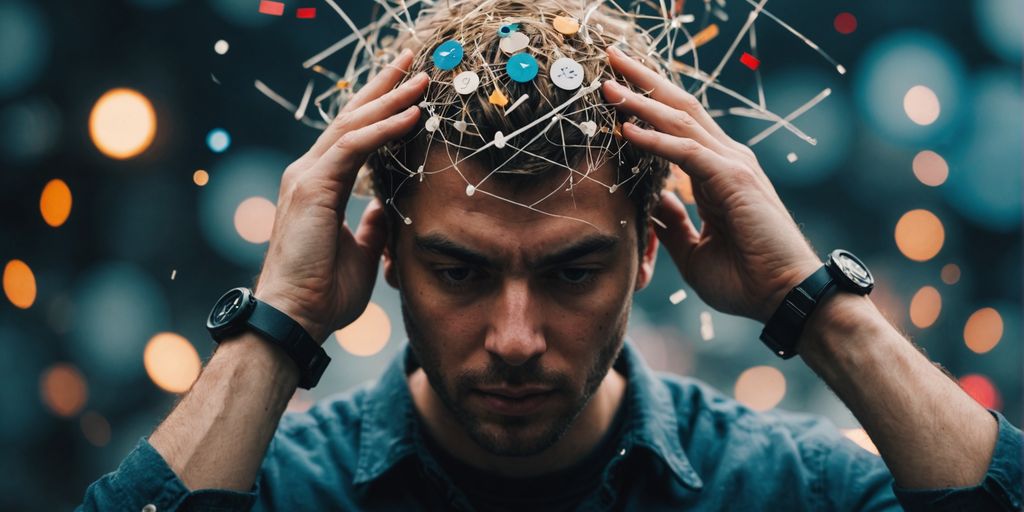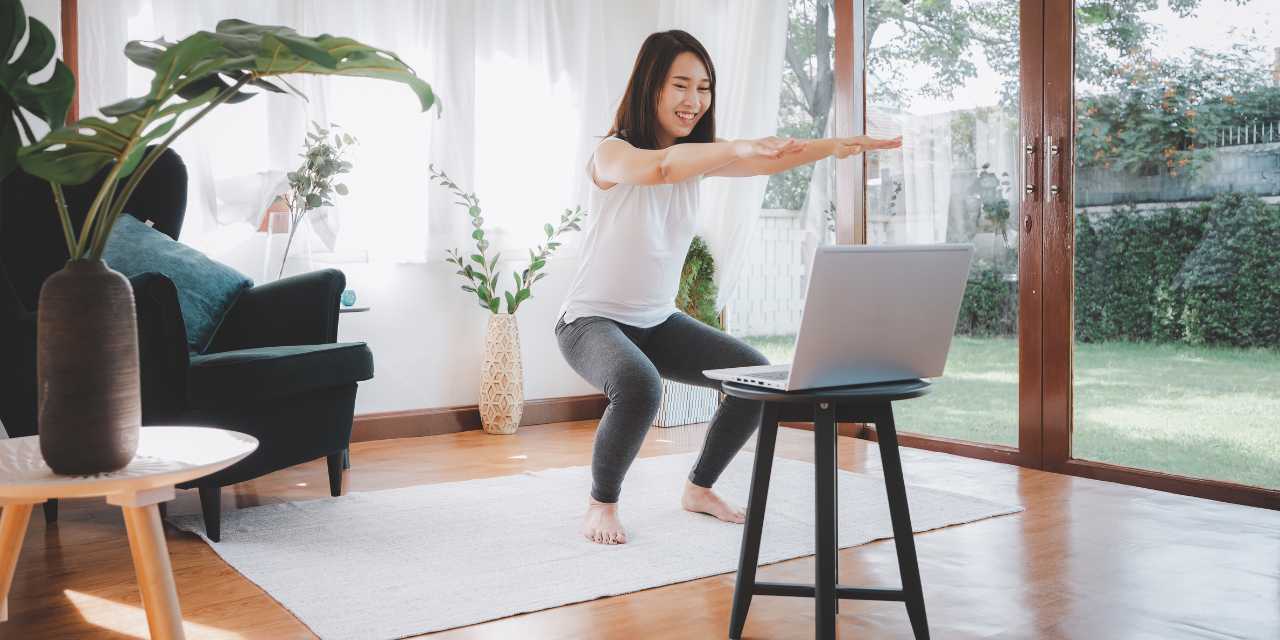Anxiety is something that many people face, and it can make everyday life really hard. It’s important to know what might be causing your anxiety so you can find ways to handle it better. This article will go over ten common things that can lead to anxiety. By understanding these triggers, you can take steps to manage your feelings and improve your mental health.
Key Takeaways
- Social media can make you feel anxious by showing you unrealistic images and stories.
- Money problems are a big cause of anxiety for many people.
- Work stress can lead to feelings of anxiety, especially if you have a lot of tasks to do.
- Worrying about your health can make you feel very anxious.
- Big changes in life, like moving to a new place, can cause anxiety.
Understanding the Roots of Anxiety
Anxiety is a complex condition that can arise from various factors, both internal and external. By uncovering the surprising causes of anxiety, we can gain a deeper understanding of how it affects our lives. This section delves into the hidden triggers that contribute to anxiety, including lifestyle choices, environmental influences, and psychological factors. Recognizing these elements is essential for developing effective coping strategies and fostering a sense of calm and well-being. Whether it’s stress at work, changes in sleep patterns, or even dietary habits, understanding the roots of anxiety empowers us to take proactive steps towards managing our mental health.
1. Social Media

Social media can be a major source of anxiety for many people. Excessive use of social media can fuel anxiety and other mental health issues. This is often due to the constant comparison with others, fear of missing out (FOMO), and the pressure to present a perfect life online.
Information Overload
Your social media diet can also be a trigger for anxiety. According to a study, using four or more social media platforms, being on social media for an hour or more per day, and visiting social media sites 30 or more times per week are all associated with an increased risk of anxiety. You don’t have to go cold turkey. Limiting the time you engage with social media can help reduce anxiety.
Emotional Connection
Feeling an intense emotional connection to social media can also contribute to anxiety. If you find yourself constantly checking in to see the latest news or social media battles, it might be time to take a step back. It’s all about finding that perfect balance.
Sometimes, engaging with social media can be a tremendously triggering experience. If that’s the case, you need to be thoughtful about whether it would make sense to limit your exposure.
Fear of Missing Out (FOMO)
FOMO is another significant factor that can cause anxiety. The constant updates and highlights of others’ lives can make you feel like you’re missing out on something important. This can lead to feelings of inadequacy and increased anxiety.
Addiction
Some people may feel addicted to using social media. This addiction can lead to spending excessive amounts of time online, which can further fuel anxiety and other mental health issues. It’s important to recognize this pattern and take steps to manage your social media use.
2. Financial Issues
Financial issues are a major cause of anxiety for many people. The stress of not having enough money to cover basic needs can be overwhelming. In fact, 32% of people report that being able to afford to pay bills is a common cause of anxiety.
People who experience financial stress often worry about their ability to afford essentials like food, heat, and housing. This can lead to a cycle of anxiety where the stress of financial problems makes it harder to manage other aspects of life.
Financial strain can negatively affect mental health, making it difficult to maintain healthy habits like getting enough sleep and staying connected with family and friends.
Common causes of financial anxiety include inadequate emergency savings, credit card debt, and high costs of living. Steps you can take to improve your finances include creating a budget, reducing unnecessary expenses, and seeking financial advice.
It’s important to remember that financial issues are not just about a lack of money. They can also involve a lack of access to resources like adequate housing and exposure to negative stressors such as violence or crime. Addressing these broader issues can help reduce anxiety related to financial problems.
3. Work Pressure

Work pressure is a common cause of anxiety. The demands of a job can be overwhelming, especially when there are tight deadlines, high expectations, or a heavy workload. Feeling anxious, overwhelmed, nervous, or on edge is a frequent response to these stressors.
Common Stressors at Work
- Tight deadlines
- High expectations from supervisors
- Heavy workload
- Job insecurity
Physical and Emotional Effects
Work pressure can lead to various physical and emotional symptoms, such as:
- Headaches
- Fatigue
- Irritability
- Difficulty concentrating
Coping Strategies
To manage work pressure, consider the following strategies:
- Prioritize tasks
- Take regular breaks
- Communicate with your supervisor
- Seek support from colleagues
It’s important to recognize the signs of work-related stress early and take steps to address them. Ignoring these signs can lead to more serious health issues over time.
4. Health Concerns
Health concerns can be a significant source of anxiety. When you worry about your health, it can lead to constant stress and fear. This is especially true if you have a chronic illness or a condition that requires ongoing treatment.
Panic attacks can occur when you are overly concerned about your health. For example, if you have a heart condition, you might constantly worry about having a heart attack, which can trigger anxiety.
People with anxiety disorders often experience heightened anxiety about their health. They may worry excessively about symptoms and fear the worst possible outcomes. This can lead to frequent doctor visits and unnecessary medical tests.
Thinking there’s something physically wrong with you can be a major trigger for anxiety. It’s important to address these concerns with a healthcare professional to manage your anxiety effectively.
Common health concerns that can cause anxiety include:
- Heart disease
- Diabetes
- Asthma
- Thyroid disorders
Managing these conditions with the help of a healthcare provider can help reduce anxiety and improve your overall well-being.
5. Relationship Problems

Relationship problems can be a significant source of anxiety. Conflicts, misunderstandings, and unmet expectations can all contribute to feelings of stress and worry. Anxiety can lead to excessive worry, anger, or irritability, which can strain relationships further.
Common Relationship Issues Leading to Anxiety
- Arguments and Disagreements: Frequent conflicts can cause ongoing stress and anxiety. Worrying about the future consequences of these conflicts can be particularly distressing.
- Lack of Communication: Poor communication can lead to misunderstandings and unresolved issues, increasing anxiety levels.
- Trust Issues: A lack of trust can create a constant state of worry and suspicion, which is mentally exhausting.
- Unmet Expectations: When expectations are not met, it can lead to disappointment and anxiety about the relationship’s future.
Impact on Mental Health
Relationship problems can lead to a cycle where anxiety worsens the relationship issues, and the relationship issues, in turn, increase anxiety. This can create a stressful environment for both partners.
It’s important to address relationship problems early to prevent them from escalating and causing more severe anxiety.
Coping Strategies
- Open Communication: Discussing issues openly and honestly can help resolve misunderstandings and reduce anxiety.
- Seek Professional Help: Couples therapy or individual counseling can provide strategies to manage anxiety and improve the relationship.
- Set Realistic Expectations: Understanding and accepting each other’s limitations can reduce disappointment and anxiety.
- Practice Self-Care: Taking care of your mental and physical health can help you manage anxiety better.
Conclusion
Relationship problems are a common cause of anxiety, but with the right strategies, it’s possible to manage and reduce this anxiety. Effective communication, trust-building, and professional support can make a significant difference.
6. Major Life Changes
Major life changes can be a significant source of anxiety. These changes often disrupt our daily routines and sense of stability, leading to feelings of uncertainty and stress.
Common Major Life Changes
- Moving to a new home: Relocating can be exciting but also stressful as it involves adjusting to a new environment and possibly leaving behind a support system.
- Starting a new job: While a new job can be a positive change, it often comes with new responsibilities and the pressure to perform well.
- Divorce or separation: The end of a significant relationship can leave a person feeling vulnerable and anxious.
- Becoming a parent: Welcoming a new child into the family is a joyful event but also brings new challenges and responsibilities.
- Retirement: Transitioning from a working life to retirement can lead to feelings of loss of purpose and increased anxiety.
How to Cope with Major Life Changes
- Acknowledge your feelings: It’s important to recognize and accept your emotions during these transitions.
- Seek support: Talking to friends, family, or a therapist can provide comfort and guidance.
- Stay organized: Keeping a routine and planning ahead can help manage the chaos that often comes with major changes.
- Take care of yourself: Ensure you’re eating well, exercising, and getting enough sleep to maintain your physical and mental health.
- Stay positive: Focus on the opportunities and positive aspects of the change, rather than just the challenges.
Major life changes can be overwhelming, but with the right strategies and support, you can navigate through them and find a new sense of balance.
Bold: Moving to a new home
Italics: support system
7. Sleep Deprivation
Sleep deprivation is a significant factor that can lead to anxiety. According to the Centers for Disease Control and Prevention, adults should aim for at least 7 hours of quality sleep each night. Not getting enough sleep can worsen anxiety symptoms.
Dr. McCann’s research highlights that even one night of poor sleep can increase anxiety levels. This creates a vicious cycle: while sleep deprivation can cause anxiety, anxiety can also lead to sleep problems.
When people are sleep-deprived, they become more sensitive to anxiety-inducing substances like caffeine. This heightened sensitivity can make it harder to manage anxiety.
Experiencing sleep deprivation can also contribute to feelings of anxiety. This can make daily tasks feel overwhelming and reduce overall well-being.
8. Substance Abuse

Substance abuse is a significant factor that can lead to anxiety. Drugs and alcohol can create a vicious cycle where anxiety and substance use feed off each other. People often turn to substances to cope with their anxiety, but this can make the problem worse in the long run.
How Substance Abuse Affects Anxiety
- Increased Anxiety: Many substances, including alcohol and recreational drugs, can increase anxiety levels. This is especially true for people with pre-existing anxiety disorders.
- Withdrawal Symptoms: When someone stops using a substance, they may experience withdrawal symptoms that include severe anxiety and panic attacks.
- Long-term Effects: Chronic use of substances can lead to long-term mental health issues, including persistent anxiety disorders.
Common Substances That Can Cause Anxiety
- Alcohol: While it may initially seem to calm nerves, alcohol can actually increase anxiety over time.
- Caffeine: This stimulant can make you feel jittery and anxious, especially if consumed in large amounts.
- Recreational Drugs: Drugs like cocaine and methamphetamine can cause severe anxiety and panic attacks.
It’s important to understand that substance use disorders and anxiety commonly co-occur. Addressing both issues simultaneously is crucial for effective treatment.
Steps to Take
- Seek Professional Help: Consult a healthcare provider for a proper diagnosis and treatment plan.
- Avoid Triggers: Stay away from substances that can worsen your anxiety.
- Healthy Lifestyle: Engage in activities that promote mental well-being, such as exercise and a balanced diet.
9. Environmental Stressors
Environmental stressors are factors in our surroundings that can lead to anxiety. These stressors can be both natural and man-made, and they often disrupt our sense of well-being.
One major environmental stressor is exposure to pollution. Polluted air and water can have a significant impact on mental health. For instance, living in areas with high levels of pollution has been linked to increased anxiety and depressive symptoms.
Natural disasters, such as hurricanes, earthquakes, and floods, can also cause anxiety. The fear of losing one’s home or loved ones during such events can be overwhelming. Additionally, the aftermath of these disasters often involves dealing with loss and rebuilding, which can be a long and stressful process.
Noise pollution is another environmental stressor. Constant exposure to loud noises, whether from traffic, construction, or other sources, can lead to increased stress levels and anxiety. This is especially true for people living in urban areas where noise is a constant presence.
Climate change and the resulting eco-anxiety is a growing concern. Worrying about the future of the planet and the potential for more frequent and severe natural disasters can cause significant anxiety. This type of anxiety is particularly common among young people who are more aware of the environmental challenges facing the world.
Lastly, living in unsafe or unstable environments can be a major source of anxiety. This includes areas with high crime rates, political instability, or exposure to violence. Feeling unsafe in one’s own home or community can lead to chronic stress and anxiety.
Environmental stressors can have a profound impact on mental health. It’s important to recognize these stressors and find ways to mitigate their effects, whether through personal coping strategies or broader societal changes.
10. Technology Overload
Technology is everywhere in our lives, from smartphones to computers. While it offers many benefits, too much technology can lead to anxiety.
Signs of Technology Overload
Signs you may be experiencing digital overload include irritability, anxiety, vision problems, difficulty sleeping, and mood swings. To lower your risk for these issues, it’s important to manage your screen time.
Managing Screen Time
Here are some tips to help you manage your screen time:
- Set specific times for using technology.
- Take regular breaks from screens.
- Use apps that limit your screen time.
- Engage in offline activities like reading or walking.
Finding Balance
It’s all about finding that perfect balance. Some amount of engaging with technology is fine, but for many people, it can be a tremendously triggering experience. If that’s the case, you need to be really thoughtful of whether it would make sense for you to limit your exposure.
Technology can be a great tool, but it’s important to use it wisely to avoid feeling overwhelmed.
By being mindful of your technology use, you can reduce the risk of anxiety and enjoy a healthier, more balanced life.
Conclusion
Understanding what triggers anxiety is a crucial step in managing it. Everyone’s triggers are different, but knowing yours can help you take control. Whether it’s health issues, financial worries, or social situations, identifying these triggers allows you to develop strategies to cope. Remember, it’s okay to seek help from professionals like therapists or doctors. They can offer guidance and support tailored to your needs. By being proactive and mindful, you can reduce the impact of anxiety on your daily life.
Frequently Asked Questions
How can social media cause anxiety?
Social media can cause anxiety by making people feel like they need to keep up with others. Seeing posts about others’ perfect lives can make you feel like you’re not good enough.
Why do financial issues lead to anxiety?
Worrying about money can make you feel unsafe. If you’re scared about paying bills or not having enough money, it can cause a lot of stress and anxiety.
How does work pressure contribute to anxiety?
Work pressure can cause anxiety because you might feel like you have too much to do or that you need to do everything perfectly. This can make you feel overwhelmed.
What are some health concerns that can trigger anxiety?
Health concerns like getting a serious diagnosis or worrying about your health can make you anxious. It’s scary to think about being sick or in pain.
How do relationship problems cause anxiety?
Relationship problems, like fighting with a friend or family member, can make you feel uneasy and stressed. It’s hard to feel good when you’re having trouble with people you care about.
Can sleep deprivation cause anxiety?
Yes, not getting enough sleep can make you feel anxious. When you’re tired, it’s harder to deal with stress, which can lead to anxiety.



